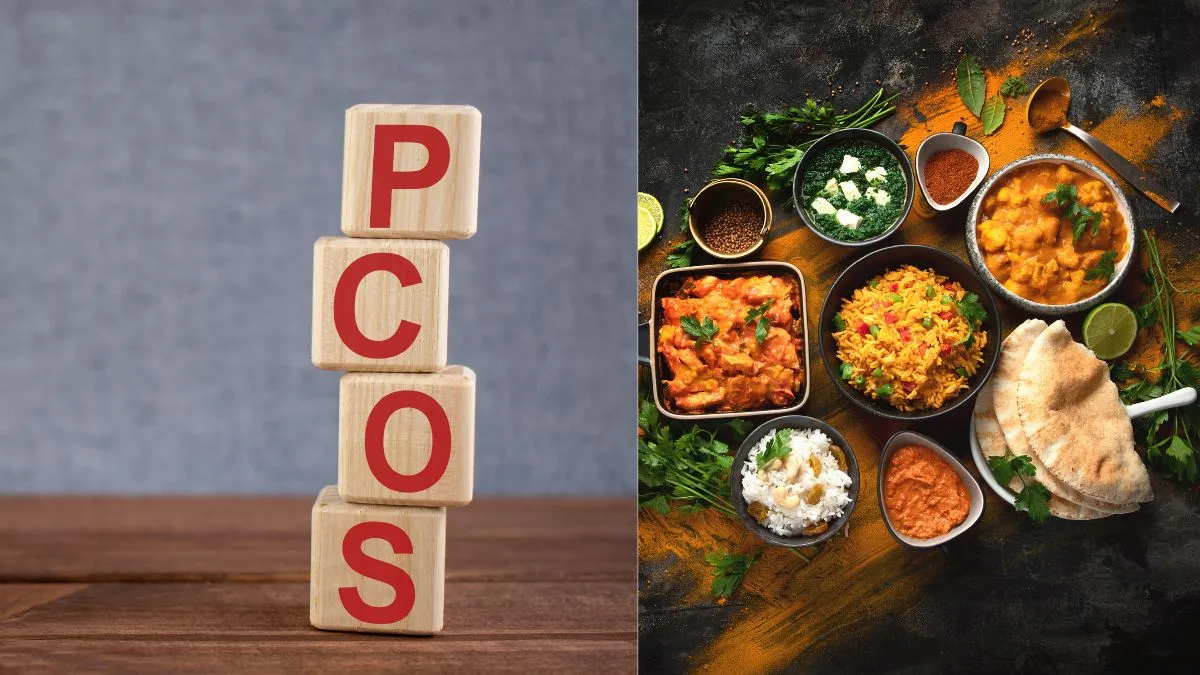- By Bornika Das
- Tue, 30 Sep 2025 06:06 PM (IST)
- Source:JND
Polycystic Ovary Syndrome or PCOS, is a condition that is troubling millions of Indian women, usually accompanied by irregular periods, hormonal imbalance, weight issues, and infertility. Medical interventions and diet modifications do help in keeping PCOS in check, but today, physicians stress that diet could be the most powerful individual determinant of managing its symptoms. What we eat influences insulin directly, hormone output, and inflammation - all key to PCOS. And with India's increasingly urban lifestyles and globalised food culture bringing more fast food, processed carbs, and sweet snacks into its population, this relationship has never been more significant.
Interestingly enough, the solutions may lie in India's own traditional kitchens. Physicians and nutritionists observe that meals constructed using millets, lentils, fresh vegetables in season, and spices such as turmeric and cinnamon not only offer consistent energy but also promote improved hormonal health. In contrast to processed foods, these age-old foods are high in fibre, antioxidants, and anti-inflammatory substances that co-exist with the body rather than against it. In conversation with The Daily Jagran, Dr. Vishal Thakur, Centre Clinical Director, Vadodara, Indira IVF Hospital Limited, shares how PCOS and diet, especially traditional Indian foods, play a major role in the hormonal well-being.
Why Diet Matters?
The Indian diet is undergoing a dramatic transformation. Globalisation, urbanisation, rising incomes, and busier lifestyles have pushed people toward convenience foods such as processed snacks, fast food, fried items and sugary drinks. Dr. Vishal Thakur shares, “These foods are typically high in refined carbohydrates, added sugars, and unhealthy fats, yet low in essential nutrients.” Regular consumption not only contributes to obesity but also to the metabolic disturbances at the heart of PCOS.
ALSO READ: PCOS And Infertility In India: Doctor Explains Why The Hidden Threat Starts During Adolescence
High-glycemic foods in particular cause quick spikes in blood sugar and insulin. Over time, this can trigger excess androgen production in the ovaries, the very hormonal imbalance that underlies PCOS. At the same time, diets rich in processed foods worsen inflammation and oxidative stress, further disrupting hormonal balance and ovarian function.
Despite these challenges, there is a growing awareness among many urban Indians who are looking back to traditional eating patterns for answers. Dr. Vishal Thakur states, “Meals centred on millets, whole grains, lentils, seasonal vegetables, and fermented foods offer steadier blood sugar control and far better nutrition.” The use of spices like turmeric, ginger, and cinnamon, with their natural anti-inflammatory and antioxidant properties, adds another layer of benefit. Reviving these time-tested diets could play a powerful role in reducing the impact of modern eating patterns on PCOS and related health issues.
-1759235594289.jpg)
How Diet Manage PCOS (Image Credits: Canva)
Strategic Changes For Indian PCOS Patients
For women managing PCOS in India, returning to more traditional, nutrient-rich foods can be a practical and effective strategy. Dr. Vishal Thakur mentions, “This means limiting processed, fried, and sugary foods, and instead building meals around millets, legumes, vegetables, and low-sugar fruits.” Adding healthy fats from nuts, seeds, olive oil, and omega-3-rich fish, along with lean proteins such as chicken, fish, or moderate amounts of low-fat dairy, can help balance hormones and improve overall health. Scientific studies confirm that these kinds of dietary patterns enhance insulin sensitivity, reduce androgen levels, and support healthier ovarian function.
ALSO READ: Ayurveda’s Holistic Path To Treat PCOS Naturally; Doctor Explains
Dietary shifts work best when combined with lifestyle changes such as regular physical activity, staying well hydrated, managing stress, and keeping alcohol intake moderate. Together, these steps not only help manage PCOS symptoms but also lower the risk of long-term complications such as type 2 diabetes and heart disease. In this way, embracing elements of India’s traditional diet is not just about going back to the past but about creating a healthier path forward for women living with PCOS.
